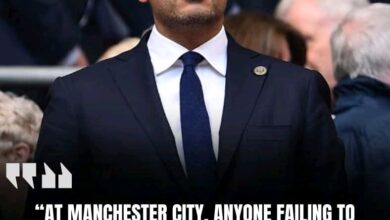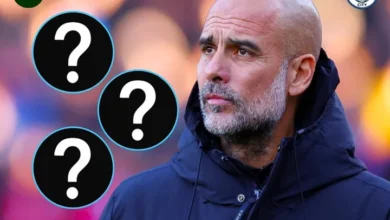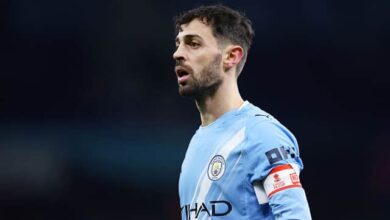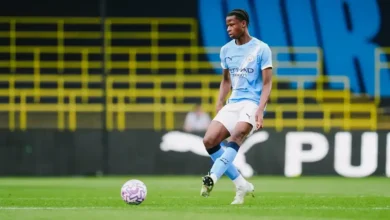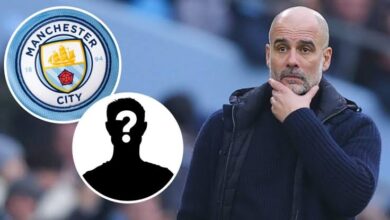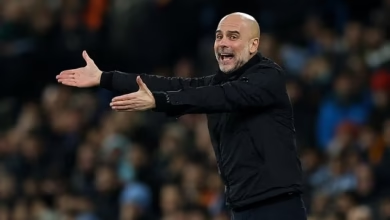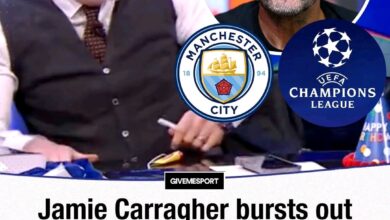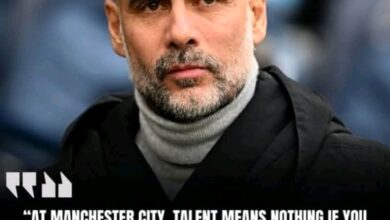Man City fans ‘excited’ by the ‘massive’ news the club has just announced
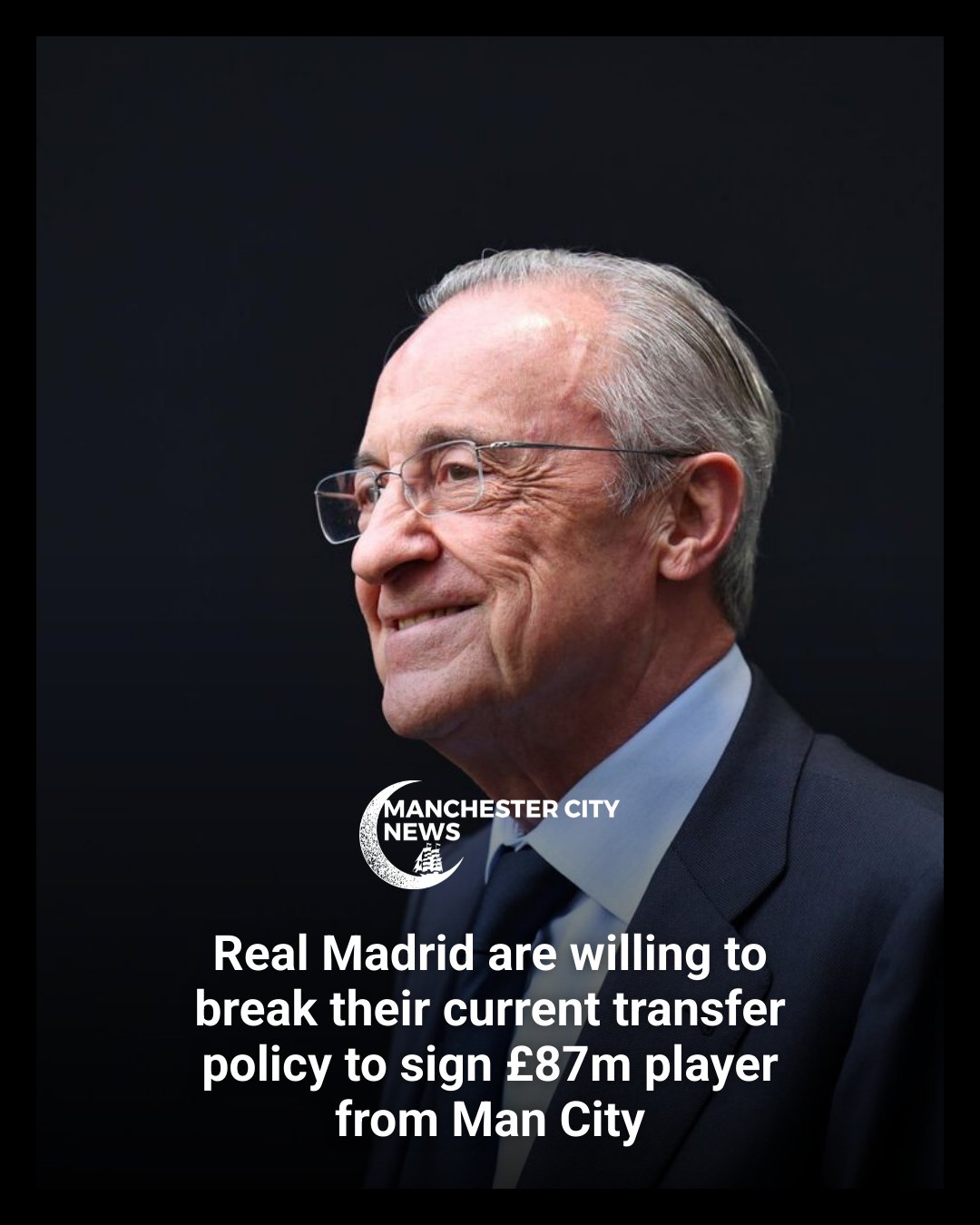
The Citizens’ approach to the current transfer window has been characterized by decisive action and clear intent. After enduring what many considered a sorry end to their previous campaign, the club’s hierarchy wasted no time in identifying areas for improvement and acting upon them. This proactive stance has already yielded four significant signings, each bringing their own unique qualities to the Etihad Stadium and offering renewed hope for the seasons ahead.
Strategic Acquisitions: Building for the Future
The quartet of new arrivals represents a carefully orchestrated recruitment strategy designed to address specific weaknesses while also investing in long-term potential. Rayan Ait-Nouri, the dynamic full-back, brings pace and attacking threat from the left flank – qualities that have become increasingly valuable in Guardiola’s tactical system. His ability to provide width in the final third while maintaining defensive solidity makes him an ideal fit for City’s high-intensity style of play.
Marcus Bettinelli’s arrival, while perhaps less glamorous than his fellow signings, represents shrewd business in the goalkeeping department. The experienced shot-stopper brings valuable depth to a position where quality competition is essential. His presence provides both security and motivation for the existing goalkeeping contingent, ensuring that standards remain high throughout the squad.
Rayan Cherki, the French attacking midfielder, represents one of the most exciting prospects in European football. His technical ability, creativity, and eye for goal have already begun to manifest in his early appearances for the club. The youngster’s integration into Guardiola’s system has been remarkably smooth, suggesting that his adaptation period may be shorter than initially anticipated. His performances have provided glimpses of the potential that made him such a coveted target across Europe.
Perhaps the most significant acquisition is Tijjani Reijnders, whose versatility and footballing intelligence have quickly endeared him to both coaching staff and supporters. The Dutch midfielder’s ability to operate in multiple positions provides Guardiola with tactical flexibility that could prove invaluable throughout a long and demanding season. His early performances have demonstrated a maturity beyond his years and an understanding of the game that suggests he will become a key figure in City’s midfield for years to come.
The Challenge of Squad Optimization
While the arrivals have generated considerable excitement, they have also created a new set of challenges for Guardiola and his coaching staff. The expanded squad now requires careful management to ensure that all players receive adequate opportunities while maintaining the competitive edge that has defined Manchester City’s recent success. This delicate balancing act is complicated by the fact that several existing players find themselves in increasingly precarious positions.
The mathematics of squad management dictate that for every player who arrives, consideration must be given to those who may need to depart. This reality has become particularly acute at Manchester City, where the depth of talent has reached a point where difficult decisions must be made. The club’s commitment to maintaining a competitive edge while adhering to financial regulations means that trimming the squad is not merely an option but a necessity.
James McAtee: A Talent Unfulfilled
Among the players expected to depart is James McAtee, whose journey at Manchester City serves as a poignant reminder of the challenges faced by young players at elite clubs. Despite his undoubted talent and the faith shown in him by the club’s academy system, McAtee has struggled to establish himself as a regular fixture in Guardiola’s first-team plans. His situation exemplifies the brutal reality of modern football, where potential alone is insufficient to guarantee success at the highest level.
McAtee’s departure, while disappointing for those who have followed his development, represents a pragmatic decision that could benefit all parties involved. The young midfielder’s need for regular first-team football to continue his development cannot be satisfied within the current structure at City, where competition for places has reached unprecedented levels. His exit would free up valuable squad space while potentially providing him with the platform to fulfill his considerable potential elsewhere.
The decision to allow McAtee to leave reflects a broader shift in Manchester City’s approach to squad management. The club’s willingness to make difficult decisions regarding promising young players demonstrates their commitment to maintaining the highest standards while ensuring that their roster remains balanced and competitive. This pragmatic approach, while sometimes painful, has been a hallmark of their sustained success under Guardiola’s leadership.
The Jack Grealish Dilemma
Perhaps no player embodies the complexity of Manchester City’s current situation more than Jack Grealish. The English international’s relationship with the club remains strong, and his affection for City is well-documented. However, the reality of his situation suggests that a departure may be in the best interests of both player and club. Despite his undoubted quality and the significant investment made in securing his services, Grealish has found regular starting opportunities increasingly difficult to come by.
The winger’s predicament highlights the challenges faced by players in an era of squad depth and tactical evolution. While his individual brilliance remains unquestioned, the emergence of other options and the tactical adjustments made by Guardiola have reduced his influence on the team’s overall performance. This situation is particularly complex given the substantial transfer fee paid for his services and the expectations that accompanied his arrival.
Grealish’s potential departure would represent a significant decision for Manchester City, both from a financial and sporting perspective. The club would need to carefully consider the implications of losing a player of his caliber while also recognizing the benefits of creating space for other talents to flourish. His exit would undoubtedly generate considerable interest from other top clubs, potentially providing City with the opportunity to recoup a significant portion of their initial investment.
Rodri: The Untouchable Asset
In stark contrast to the uncertainty surrounding other squad members, Rodri’s position at Manchester City appears unassailable. The Spanish midfielder’s importance to the team’s success has been thoroughly demonstrated, particularly during his absence through injury. His return to fitness represents one of the most significant developments for the club as they prepare for the upcoming season.
The midfielder’s recovery from his knee injury has been managed with characteristic patience and professionalism by the club’s medical team. His gradual reintegration into the squad reflects the long-term thinking that has become synonymous with Manchester City’s approach to player management. The club’s investment in his recovery demonstrates their recognition of his irreplaceable value to the team’s tactical system.
Rodri’s recognition as the Ballon d’Or winner serves as validation of his exceptional qualities and his importance to both club and country. This prestigious award has only served to increase interest from other elite clubs, with Real Madrid’s president Florentino Perez reportedly viewing him as the ideal addition to their midfield. However, Manchester City’s determination to retain their key asset remains unwavering, recognizing that his departure would be virtually impossible to remedy through the transfer market.
The Real Madrid Interest
The interest from Real Madrid in Rodri represents both a compliment to Manchester City’s recruitment and development processes and a potential threat to their squad stability. Florentino Perez’s willingness to allocate substantial resources to secure the midfielder’s services underscores the Spanish club’s recognition of his exceptional qualities. The reported £87 million valuation speaks to the premium placed on players of Rodri’s caliber in the current market.
However, Manchester City’s position regarding their star midfielder remains resolute. The club’s financial strength and competitive ambitions provide them with the leverage necessary to resist even the most lucrative offers. Rodri’s importance to their tactical system cannot be overstated, and his departure would require a complete restructuring of their approach to midfield play.
The situation also highlights the changing dynamics in the relationship between Europe’s elite clubs. Manchester City’s evolution from ambitious challengers to established powerhouses has fundamentally altered their position in the transfer market. They are no longer compelled to sell their best players to generate revenue or satisfy the ambitions of departing stars. Instead, they have become the destination that attracts the world’s finest talents.
Tactical Implications of Squad Changes
The restructuring of Manchester City’s squad has significant tactical implications that extend far beyond simple personnel changes. Guardiola’s ability to adapt his tactical approach to maximize the strengths of his available players has been a defining feature of his tenure at the club. The integration of new signings while managing the departure of established players requires careful consideration of how these changes will affect the team’s overall dynamics.
The arrival of players like Ait-Nouri and Cherki provides Guardiola with new tactical options that could influence his approach to specific matches and competitions. Their different skill sets and playing styles offer alternatives to the established patterns of play that have characterized City’s recent success. This tactical flexibility could prove crucial in the club’s pursuit of multiple trophies across different competitions.
The potential departure of players like McAtee and Grealish also creates opportunities for other squad members to assume greater responsibilities. This natural evolution of roles within the squad is essential for maintaining the competitive edge that has defined Manchester City’s success. The ability to promote from within while integrating new talent has been a hallmark of Guardiola’s management style.
Financial Considerations and Squad Balance
The financial implications of squad restructuring extend beyond simple transfer fees and wages. Modern football’s financial regulations require clubs to maintain a careful balance between investment and sustainability. Manchester City’s approach to squad management must therefore consider not only sporting objectives but also compliance with financial fair play regulations.
The departure of high-earning players like Grealish could provide the club with greater flexibility in their pursuit of other targets or in contract negotiations with existing players. This financial maneuvering is essential for maintaining competitiveness while ensuring long-term sustainability. The club’s success in this area has been a key factor in their sustained excellence over recent years.
The integration of younger players like Cherki and Reijnders also represents sound financial planning. Their potential for development and increased value over time makes them attractive investments from both sporting and financial perspectives. This blend of immediate impact and long-term potential characterizes Manchester City’s modern approach to recruitment.
The Broader Context of Squad Evolution
Manchester City’s current squad restructuring should be viewed within the broader context of their evolution as a football club. The transformation from Premier League newcomers to global powerhouses has required constant adaptation and improvement. The current changes represent the latest phase in this ongoing evolution, demonstrating the club’s commitment to maintaining their position at the summit of world football.
The ability to attract players of the caliber of Reijnders and Cherki while retaining stars like Rodri illustrates the club’s enhanced status in the global football hierarchy. This positioning provides them with advantages in the transfer market that extend beyond simple financial considerations. The appeal of working with Guardiola and competing for the sport’s biggest prizes has become a significant factor in their recruitment success.
The challenges faced in managing squad depth and player satisfaction are not unique to Manchester City but are particularly acute given their ambitions and resources. The club’s handling of these challenges will influence their ability to maintain their current level of success while building for the future.
Looking Ahead: The Season’s Prospects
As Manchester City prepares for the upcoming season, the success of their squad restructuring will be measured not only in terms of immediate results but also in their ability to maintain the standards that have defined their recent success. The integration of new players while managing the departure of others represents a complex challenge that requires careful planning and execution.
The club’s supporters have reason for optimism given the quality of the new arrivals and the retention of key players like Rodri. However, the true test of these changes will come when the competitive season begins and the team faces the pressure of maintaining their position at the top of English and European football.
The upcoming campaign will provide the first opportunity to assess the effectiveness of the squad changes and the tactical adjustments they have necessitated. Success will depend not only on individual performances but also on the collective ability to adapt to new dynamics and maintain the winning mentality that has characterized Manchester City’s recent achievements.
Conclusion: A New Chapter Begins
Manchester City’s summer of transformation represents more than simple squad adjustments; it marks the beginning of a new chapter in the club’s ongoing evolution. The decisions made in the coming weeks will influence not only the immediate prospects for success but also the long-term trajectory of the club’s development.
The balance between continuity and change that characterizes their current approach reflects the maturity and sophistication of their planning processes. The retention of key figures like Rodri while introducing fresh talent demonstrates a clear understanding of what is required to maintain competitiveness at the highest level.
As the new season approaches, Manchester City stands poised to embark on another ambitious campaign armed with a restructured squad that blends experience with youth, proven quality with exciting potential. The success of this transformation will ultimately be judged by their ability to continue the winning tradition that has defined their recent history while building the foundation for future success.
The coming months will reveal whether the club’s bold decisions in the transfer market will translate into continued success on the pitch. What remains certain is that Manchester City’s commitment to excellence and their willingness to make difficult decisions in pursuit of their objectives continues to define their approach to the beautiful game.






